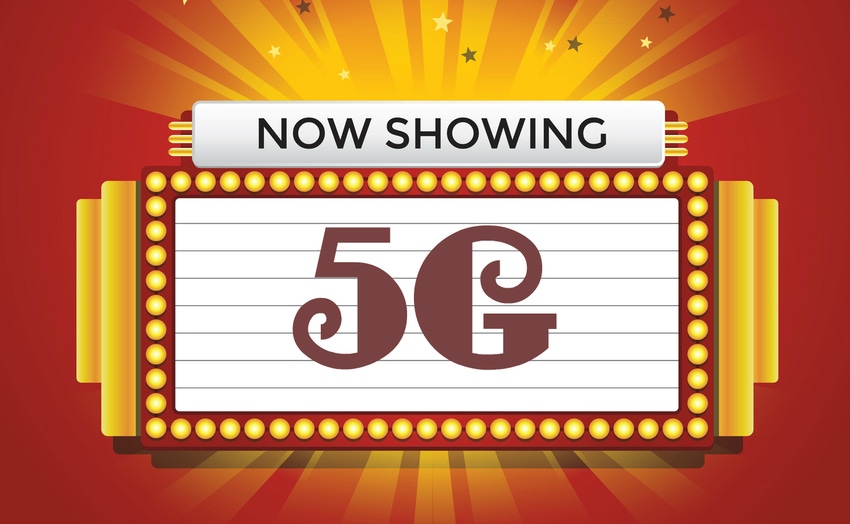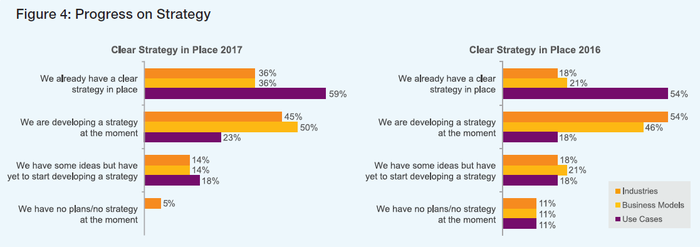Ericsson has released its annual 5G Readiness Survey, and the results are starting to look very positive. In fact, 28% of respondents expect to deploy 5G next year.
October 12, 2017

Ericsson has released its annual 5G Readiness Survey, and the results are starting to look very positive. In fact, 28% of respondents expect to deploy 5G next year.
Comparing the last two reports, the trends are certainly heading in the right direction. 78% are in the trial phase of 5G, compared to 32% in 2016, while the strategies to actually make use of the technology are starting to become a bit clearer. 59% now have a clear strategy in place for 5G use cases, while 36% feel they have a clear business model. 50% are still working on the business model side of things, but they still have time. Overall it is looking pretty positive.
In terms of actual progress, as mentioned before, 28% are confident of deploying 5G in 2018, which is up from 18% who thought 2018 was realistic last year. Of course there are the more cautious operators, having been burnt by the 3G euphoria in previous years, as 34% are going to sit and wait to see how it goes for competitors. Could be a sensible approach if it goes wrong, but we get the impression there is enough demand from customers to ensure 5G will be an almost immediate success. Playing catch-up is not an enviable position to be in.
Plus there’s all those cat videos people want to watch on the train.
“In the 2016 survey, 90% of the respondents pointed to consumers as the main segment in their 5G business planning,” said Thomas Noren, Head of 5G Commercialization at Ericsson. “This year, it is an even split between three segments and operators have identified business opportunities not only in the consumer segment but also with enterprise users and specialized industries.”
What might be flagged as a slight concern however is the monetization of 5G. It is supposed to be a breakthrough which would allow operators to recapture lost fortunes of yesteryear through the monetization of areas such as IoT, but old attitudes don’t seem to have been lost.
23% of the respondents to the survey said they would monetize the services through stealing market share from competitors on the back of new features and performance, while an additional 18% think the money will come from undercutting on price. While growth will always be partly fuelled by stealing market share, technology breakthroughs are supposed to generate new idea and new revenues for growth.
The last couple of years has seen new threats emerge and take bigger and bigger slices of the telco pie. Revenues have been lost to those outside of the industry and the communications segment on the whole has become less profitable. The answer was supposed to be realising the potential of 5G and reinvigorating the spreadsheet with new revenue.
But if the objective is to steal market share from the rest of the industry, the spiral downwards will continue. The OTTs will continue to grab a bigger and bigger slice of the pie, meaning the total amount of cash being passed between the operators will be less and less. Especially considering the price of a GB is getting cheaper and cheaper. A lack of ambition to look into new areas and generate revenue which didn’t exist previously is very worrying.
Why are telcos complaining about commoditization if this is the attitude to new technology? One thing you can guarantee is companies like Facebook, AWS and Google have got some clever people thinking about some wonderful ways to activate 5G which doesn’t exist today. This is the reason profits in Silicon Valley are continuing the astronomical growth, while it is flatlining in the telco space. They show courage, a sense of adventure and ambition. Where is this attitude for the telcos?






About the Author(s)
You May Also Like








.png?width=300&auto=webp&quality=80&disable=upscale)


_1.jpg?width=300&auto=webp&quality=80&disable=upscale)


.png?width=800&auto=webp&quality=80&disable=upscale)